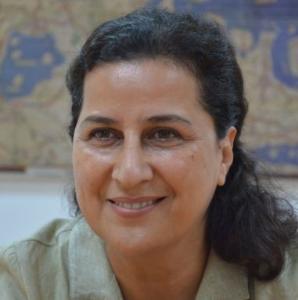Specialist conference
Details
The world order is currently characterized by a fluidity that challenges traditional structures through the forces of globalization. We can thus witness a major evolution: the deregulation of the international system with the emergence of alternative (dis-)orders. As globalization itself evolves and changes, it is subject of increasing contestations shaped by the rise to power of local logics and regional dynamics. We see an assertion of new logics of power, with poles such as China, Russia, India, Brazil and Iran, who aim to relativize the geopolitical role of the US and more broadly the preeminence of the West. International organizations increasingly find themselves struggling how to respond to current challenges which require new development models. It is precisely in this context of changing power balances where geopolitics shows its relevance in (re-)shaping the outlines of the world of tomorrow.
While traditionally, the Chinese strategy had been characterized by prudence and a discrete use of its capacities in order to pursue its ambitions, President Xi Jinping is currently re-orienting the country towards a path of renaissance, aspiring to re-establish its geopolitical centrality. It is in this context that the new silk roads project asserts itself, aiming to reconfigure the geopolitical and geo-economic balances at the global level. The strategic large-scale infrastructure project “Belt and Road Initiative” (BRI), aspires to resuscitate the old silk roads by connecting Asia, Europe, the Mediterranean and Africa while also extending to Oceania and Latin America through the construction of roads, railways, maritime and technology routes, oil and gas pipelines, as well as ports. The colossal infrastructure project is valued at 5,000 billion USD and includes almost 65 countries with a total of 4.5 billion inhabitants, representing around 55% of the global GDP and 75% of worldwide energy resources.
In this context, the conference brings together experts from different backgrounds in order to enable a discussion of the BRI, a project which is still little known in Tunisia and the rest of North Africa. What are the geopolitical and economic considerations behind this large-scale project? What are its components? How will it affect the economic systems and geopolitical balances in the Middle East, the Mediterranean and North Africa? How is it perceived by the European Union, the main economic partner of the countries of North Africa? What visions do North African countries have for their role in the project? And how do they position themselves vis-à-vis the expected upheavals in geopolitical and economic relations in the region? How can Tunisia best position itself to benefit from the project? The conference aims to give answers, and to discuss propositions and innovative orientations regarding these questions.
Program
Tuesday, 10 April 2018
09:00 Opening
H.E. Khemaies Jhinaoui, Minister of Foreign Affairs, Tunisia (TBC)
09:15 Welcoming remarks
Dr. Canan Atilgan, Director, Regional Program South Mediterranean, Konrad-Adenauer-Stiftung
09:30 The outlines of the new silk roads
Chair: Dr. Canan Atilgan, Director, Regional Program South Mediterranean, Konrad-Adenauer-Stiftung
- The Belt and Road Initiative: Ambitions, Components and State of Play
Dr. Aiping Zeng, Assistant Research Fellow, China Institute of International Studies (CIIS) & Deputy Executive Director, China-Asian African Cooperation Centre (CAACC), Beijing
- Presentation of the policy paper: “The new silk roads and North Africa: What are the synergies?”
Mehdi Taje, Director, Global Prospect Intelligence, Tunisia
10:45 Panel 1: Geopolitical considerations of the BRI
Chair: Mohamed Sahbi Basly, President, Council of Tunisian-Chinese Cooperation & Vice-Chairman, World Public Diplomacy Organization (WPDO) in charge of the Mediterranean
- The new silk roads: A chance for the Maghreb?
Abdelhak Bassou, Senior Fellow, OCP Policy Center, Morocco
- North Africa: internal economic considerations and their geopolitical implications
Dr. Hamza Meddeb, Associate Fellow, Middle East and North Africa Programme, Chatham House, Tunisia
- Patterns and trends in Chinese involvement in the Middle East
Helena Legarda, Research Associate, Mercator Institute for China Studies, Germany
- Geopolitics of the maritime silk roads
Dr. Mathieu Duchâtel, Senior Policy Fellow and Deputy Director of the Asia and China Programme, European Council on Foreign Relations, Paris
13:45 Panel 2: Economic and socio-economic dynamics of the BRI
Chair: Martin Henkelmann, General Director, German-Tunisian Chamber of Industry and Commerce
- Economic development in North Africa: new partners, new opportunities
Ali Benouari, President Ecofinance & former Minister of Treasury, Algeria
- Enhanced connectivity in the energy sector
Dr. Frank Umbach, Research Director, European Centre for Energy and Resource Security (EUCERS), King's College, London
- The role of the private sector in the BRI
Majdi Hassen, Executive Director, Arab Institute for Business Leaders (IACE), Tunisia
- BRI and the role of the banking sector
Ahmed Karam, Vice-President, Amen Bank, Tunisia
15:45 Keynote speech: The BRI in the Mediterranean – a perspective from Egypt
H.E. Amre Moussa, former Secretary-General, Arab League, Egypt
16:15 Panel 3: Positioning of North African countries vis-à-vis the BRI: state of play and outlook
Chair: H.E. Dr. Mahmoud Gebril, Former Prime Minister of Libya, President of the National Forces Alliance
- A new regional hub in North Africa?
Hassane Saoudi, Professor & Associated Researcher, Royal Institute for Strategic Studies (IRES), Morocco
- A chance for economic diversification?
H.E. Ahmed Ghozali, former Prime Minister, Algeria (TBC)
- New dynamics for growth
Tahar Bayahi, Executive President, SICO Tunisia & President, Chinese-Tunisian Chamber of Commerce
18:15 Cocktail reception
Wednesday, 11 April 2018
09:30 Keynote speech: The new silk roads in the Mediterranean – a European perspective
H.E. Miguel Ángel Moratinos, former Minister of Foreign Affairs, Spain
10:00 Panel 4: BRI – A new and sustainable model for development?
Chair: Mehdi Taje, Director, Global Prospect Intelligence, Tunisia
- The BRI and its contribution to sustainable development
Dr. Chang Liu, Assistant Research Fellow, Department of Developing Countries Studies, China Institute of International Studies
- The emergence of new development models
Peter Stein, Member of the German Bundestag, Member of the Committee on Economic Cooperation and Development
- The BRI: Towards a more flexible development policy approach?
Dr. Alice Ekman, Researcher, Institut Français des Relations Internationales (Ifri)
- Emerging powers and new development models: Questions of sustainability
Alexandre Kateb, Director, COMPETENCE FINANCE, Algeria
- The BRI and economic aspects of the reconstruction in Syria
H.E. Adnan Omran, former Deputy Secretary-General, Arab League, Syria
13:30 Roundtable: How to best position Tunisia: Strategic orientations and recommendations
Chair: Afif Chelbi, President, Conseil des Analyses Economiques, Présidence du Gouvernement, Tunisia
Discussants:
- Khalil Laabidi, President, Tunisian Investment Authority
- Habib Karaouli, CEO, Capital African Partners Bank, Tunisia
- Kais Daly, former CEO of Groupe Chimique Tunisien
- Rear Admiral Kamel Akrout, Senior National Security Advisor, Office of the President of the Republic, Tunisia
- H.E. Dr. Salah Hannachi, President Atlas Foundation & former diplomat, Tunisia
- Samir Azzi, CEO, Tunisian Export Promition Center (CEPEX), Tunisia
- Anis Jaziri, Secretary General, Tunisia Africa Business Council (TABC) & former Advisor for Economic Affairs to the President of the Republic, Tunisia
- H.E. Slahedinne Jemmali, Ambassador & Special Representative of the Secretary-General of the Arab League to Libya




